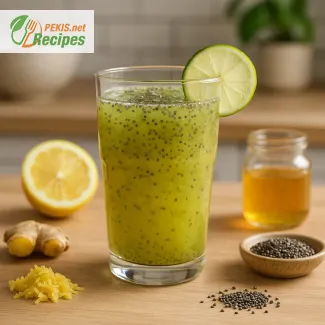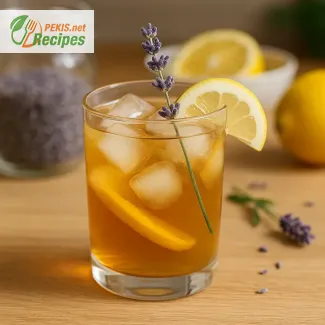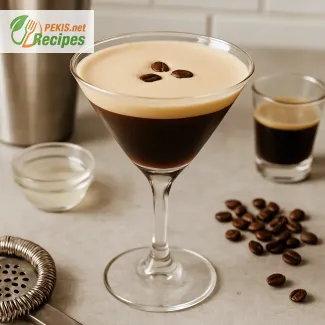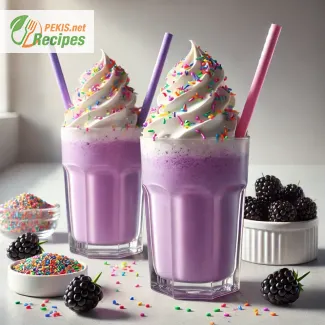
The Perfect Zesty Drink for Hot Days
Discover the Timeless Appeal of Homemade Lemonade
When temperatures rise and the sun casts its golden glow over the landscape, few beverages are as universally loved and endlessly refreshing as a glass of homemade lemonade. This classic summer drink is more than just a combination of citrus and water—it’s a celebration of simplicity, balance, and the invigorating essence of fresh ingredients. Whether served at family picnics, backyard barbecues, or simply enjoyed on the porch with a book in hand, lemonade carries with it a sense of nostalgia and satisfaction that no store-bought version can quite replicate.
The Essence of Fresh Lemon Juice
At the heart of every truly satisfying glass of lemonade is the juice of real, freshly squeezed lemons. Unlike concentrates or bottled alternatives, fresh lemon juice offers a vibrant, tangy flavor with just the right acidity to awaken the senses. Each lemon contributes not just its juice, but also the natural citrus oils from its peel, subtly enhancing the drink’s aroma and adding complexity to its taste. For the best results, use ripe, juicy lemons that yield plenty of liquid without excessive bitterness.
Balancing Sweetness with Natural Ingredients
The art of making the perfect lemonade lies in the harmony between sweetness and acidity. Too sour, and the drink becomes sharp and harsh. Too sweet, and it loses the lively character that makes lemonade so compelling. Traditional recipes call for white granulated sugar, but many modern variations experiment with honey, agave syrup, or even maple syrup for a deeper flavor profile. Creating a simple syrup by dissolving sugar in warm water ensures a smooth texture without undissolved crystals, which can ruin the drinking experience.
The Importance of Cold, Filtered Water
While lemons and sweetener are the stars, the quality of water used is just as important. Using cold, filtered water gives the lemonade a clean, crisp foundation. It dilutes the lemon juice to a palatable level while enhancing clarity and smoothness. Ice cubes are essential, not only for serving but also for presentation, transforming a humble drink into a visually appealing, icy refreshment.
Elevating Flavor with Optional Enhancements
Though traditional homemade lemonade is flawless in its simplicity, there are countless ways to give it a personalized twist. Adding a handful of fresh mint leaves, a dash of lavender, or slices of cucumber can infuse the drink with subtle aromatic notes. For a more fruit-forward approach, muddled strawberries, blueberries, or raspberries can be blended into the mixture, turning it into a visually stunning and flavor-packed treat. Even a splash of sparkling water or club soda introduces a fizzy texture that appeals to lovers of carbonated drinks.
Serving and Presentation Ideas
A cold pitcher of lemonade is a visual and sensory delight. For an appealing presentation, serve in tall, clear glasses filled with ice and garnished with lemon slices, mint sprigs, or edible flowers. Mason jars or vintage tumblers add a rustic charm, perfect for outdoor settings or informal gatherings. Consider chilling the serving glasses beforehand for an extra touch of refreshment.
Cultural and Historical Resonance
Lemonade has deep roots across cultures, with early forms traced back to ancient Egypt, where lemon juice was mixed with sugar and water as a cooling remedy. Over time, it became a fixture in various cuisines, especially in regions with abundant citrus groves. In American tradition, lemonade stands are symbolic of childhood entrepreneurship, representing both the drink’s widespread appeal and its role in community and family life.
Health and Hydration Benefits
While we won’t explore nutritional specifics here, it’s worth noting that homemade lemonade, when made without artificial additives, is a naturally hydrating beverage that offers more than just refreshment. The presence of vitamin C and natural electrolytes from lemon juice can support wellness during hot weather or after physical activity, especially when served cold.
Seasonal Versatility and Year-Round Enjoyment
Although lemonade is most commonly associated with summer, it can be enjoyed throughout the year. In colder months, a warm lemonade variation—served with honey and a pinch of ginger—offers a comforting, soothing drink. In spring, floral infusions such as elderflower or rosewater can add seasonal flair, while in autumn, a cinnamon stick or hint of clove transforms lemonade into a spiced, sophisticated refreshment.
Sustainability and Homemade Control
Choosing to make lemonade at home not only guarantees freshness and flavor but also supports a more sustainable lifestyle. You control the ingredients, avoid preservatives, reduce plastic waste, and have the flexibility to adjust taste, sweetness, and flavor additions based on personal preferences. It’s a small but meaningful way to bring wholesome joy into your kitchen.
1. Prepare the simple syrup:
In a small saucepan, combine 100 g (½ cup) of sugar with 100 ml (⅓ cup + 1 tbsp) of water. Heat over medium heat, stirring constantly until the sugar has completely dissolved. This should take about 3–5 minutes. Do not boil. Remove from heat and let it cool to room temperature.
2. Squeeze the lemons:
Using a citrus juicer, extract 180 ml (¾ cup) of juice from fresh lemons. Strain the juice through a fine mesh sieve to remove seeds and excessive pulp.
3. Mix the lemonade:
In a large pitcher, combine the lemon juice, cooled simple syrup, and 800 ml (3 ½ cups) of cold filtered water. Stir well to blend all components evenly.
4. Add ice and chill:
Add 150 g (1 ½ cups) of ice cubes to the pitcher or directly into serving glasses. Stir again to ensure the lemonade is thoroughly chilled.
5. Garnish and serve:
Pour the lemonade into glasses and garnish with lemon slices and fresh mint leaves, if desired. Serve immediately.
Creative Variations and Common Pitfalls When Making Lemonade
Expert insights for enhancing the flavor, texture, and presentation of homemade lemonade
The simplicity of homemade lemonade is precisely what makes it such a beloved beverage. However, it also provides a blank canvas for culinary creativity and innovation. While the traditional combination of lemon juice, sugar, and water delivers a classic result, there are numerous ways to elevate both flavor and nutritional value. Understanding how different ingredients and techniques interact can turn an ordinary glass of lemonade into an exceptional refreshment suited to personal taste, seasonal availability, or dietary preferences.
Flavor enhancers that add complexity and depth
One of the easiest ways to improve traditional lemonade is by incorporating herbs, spices, or fruits that complement the citrus profile. Fresh herbs like mint, basil, or thyme can provide an aromatic dimension, especially when gently muddled or infused in the simple syrup. These additions bring not only flavor but also a refined presentation.
Adding ginger introduces a warming, peppery note that balances the acidity of lemons with subtle heat. A few slices of fresh ginger boiled with sugar during syrup preparation can dramatically enhance complexity without overwhelming the original citrus brightness.
Seasonal fruits such as strawberries, raspberries, or peaches can be blended and strained into the lemonade for a colorful, fruit-forward version. These not only enhance visual appeal but add natural sweetness, which may allow for a reduction in added sugar.
A touch of vanilla extract or a few drops of orange blossom water can also elevate lemonade into a more gourmet experience, offering soft floral or creamy undertones.
The impact of sweeteners on taste and health
Traditional lemonade recipes rely on white granulated sugar, but this is not the only option. Substituting the sweetener can significantly impact the drink’s flavor profile, texture, and health benefits.
Using honey instead of sugar yields a deeper, floral sweetness, especially if you opt for a raw, locally sourced variety. It's ideal for pairing with herbaceous or spiced infusions.
Agave syrup dissolves easily and contributes a clean, mellow sweetness with a lower glycemic index than cane sugar. However, its more neutral flavor might not enhance the citrus notes as dramatically.
Coconut sugar and maple syrup bring earthy, caramelized notes, which can add richness and a hint of complexity to the drink, particularly when served chilled with grilled dishes or smoky flavors.
For a sugar-free option, stevia, erythritol, or monk fruit extract provide sweetness without calories. These are particularly suitable for diabetic-friendly variations, although they can sometimes introduce a mild aftertaste, which is best masked by herbs or fruits.
Why homemade lemonade is superior to bottled versions
Preparing lemonade at home ensures ingredient transparency and allows for customization, which bottled varieties rarely offer. Many commercial lemonades contain preservatives, artificial flavors, and excessive sugars or syrups. Freshly squeezed lemon juice, in contrast, delivers a more vibrant and natural citrus character, free from metallic or chemical aftertones.
Homemade lemonade can be adapted in real time—more sour or more sweet, depending on preference—and tailored to specific dietary or flavor needs. It also eliminates the use of plastic packaging, making it an environmentally friendlier choice.
Mistakes to avoid when making homemade lemonade
Although lemonade is straightforward, several common errors can compromise its final taste and quality:
- Using bottled lemon juice: This often lacks the bright acidity and fresh aroma of fresh lemons and can impart a dull, flat taste.
- Skipping the simple syrup step: Pouring granulated sugar directly into cold water can lead to uneven sweetness and gritty texture. Always dissolve the sugar in warm water or prepare a syrup for consistency.
- Incorrect lemon-to-water ratio: Too much water makes the drink bland; too little results in overwhelming tartness. Precision matters for balanced flavor.
- Over-infusing herbs: Letting herbs steep too long can cause bitterness. Add them just before serving or for short infusions.
- Neglecting the ice: Serving warm or room-temperature lemonade diminishes its refreshing quality. Use plenty of ice or pre-chill all ingredients.
Nutrient-rich and health-conscious alternatives
Beyond flavor, there are ways to make lemonade healthier without sacrificing taste:
- Replace white sugar with fruit purées or freshly pressed juice from sweeter fruits like pineapple or grapes to reduce refined sugar content.
- Use mineral water or sparkling water to add natural minerals and carbonation, making the drink more festive and digestive-friendly.
- Infuse with turmeric or matcha to introduce anti-inflammatory compounds and subtle, earthy tones.
- Add chia seeds for texture and a dose of fiber and omega-3 fatty acids—ideal for a post-workout or mid-day energy boost.
- Blend in a small amount of cucumber juice to lower the acidity while adding a refreshing vegetal note.
Seasonal inspiration and serving styles
Lemonade adapts beautifully to the seasons. In spring, floral additions like lavender, jasmine, or elderflower capture the freshness of blooming gardens. In autumn, cinnamon sticks, clove, or nutmeg provide warmth and spice. Winter variations often include warm water, honey, and ginger, making them comforting and immune-supportive.
The way lemonade is served also affects perception. Using crushed ice creates a slushy, cocktail-style texture, while clear ice cubes offer elegance and clarity. Garnishing with edible flowers, fruit skewers, or herb sprigs enhances visual appeal and gives the drink a crafted feel that aligns with upscale gatherings.
How temperature and resting time affect flavor
Allowing the lemonade to rest in the refrigerator for at least 30 minutes after mixing allows the flavors to meld together, creating a smoother and more integrated profile. Serving too early can result in a disjointed flavor experience, especially if you're using additional infusions like herbs or fruit.
For the best results, prepare the lemonade a few hours in advance and serve cold, directly from the fridge. If using carbonated water, add it just before serving to preserve the fizziness.
Making lemonade part of a balanced lifestyle
Beyond its role as a treat, homemade lemonade can support hydration, detoxification, and even digestion, especially when paired with health-boosting ingredients. Using alkaline water, low-sugar sweeteners, and vitamin-rich additions turns this humble beverage into a functional drink.
Whether you're serving it at a family barbecue, preparing it for a children’s party, or sipping it post-workout, lemonade can be tailored to nearly any occasion or nutritional goal—so long as its preparation respects balance, freshness, and purpose.
Allergens and gluten presence:
- This recipe is naturally gluten-free.
- It contains no common allergens such as dairy, eggs, nuts, soy, or shellfish.
Substitution tips to eliminate allergens and gluten:
- If you’re concerned about processed sugar, replace it with organic cane sugar or natural sweeteners like agave syrup or maple syrup, both of which are gluten-free and allergen-free.
Vitamins and minerals per serving (approximate):
- Vitamin C – 30 mg: Supports immune function and skin health.
- Potassium – 95 mg: Helps regulate fluid balance and nerve signals.
- Calcium – 6 mg: Contributes to bone health.
- Magnesium – 4 mg: Supports muscle and nerve function.
Antioxidants per serving (approximate):
- Citrus flavonoids – 5 mg: Help reduce oxidative stress and inflammation.
- Ascorbic acid (vitamin C) – 30 mg: Neutralizes free radicals and boosts immune response.





